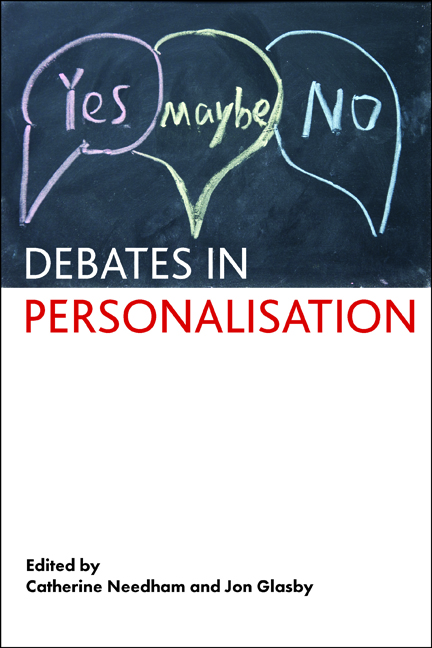Book contents
sixteen - Where next for personal health budgets?
Published online by Cambridge University Press: 04 March 2022
Summary
Judged by government announcements, the progress of personal health budgets (PHBs) continues apace. Following the government's 2012 announcement that adults and children eligible for NHS Continuing Healthcare (CHC) would be entitled to ask for a PHB from April 2014, a new announcement in 2013 has already transformed the ‘right to ask’ into a ‘right to have’ (House of Commons, 2013). However, looking beyond the 56,000 people who are eligible for CHC to the millions with long-term conditions, the future of PHBs looks less certain and straightforward.
The current policy commitment around the roll-out of PHBs beyond CHC is relatively weak; as of 2015, clinical commissioning groups (CCGs) – local purchasers of NHS services – should be able to offer a PHB to anyone with a long-term condition who could benefit (DH, 2012a). For PHBs to become a real option for the many thousands of people with long-term conditions, the NHS will have to confront challenges on three fronts: current approaches to commissioning and reconfiguring services; the lack of clinical awareness and support for PHBs; and the lack of bottom-up demand for PHBs from individuals and families. None of these has presented as significant a challenge in the context of CHC.
Progress will also depend on maintaining the cross-party consensus going forward that has been critical to the development of personalisation to date, as Needham and Glasby discuss in Chapter Two. Here, cracks are emerging that could stall momentum behind PHBs after the next election and even send it into reverse. The value of overcoming these different challenges lies in the demonstrable improvement that PHBs have been shown to make to the wellbeing and quality of life of budget holders in a way that is cost-effective for the NHS (Forder et al, 2012).
PHBs and the challenge for commissioning
A critical question for the future of PHBs is how to fund them on a cost-neutral basis. Estimates suggest that the NHS in England faces a funding gap of £14 billion between 2014/15 and 2021/22, even if funding for the NHS rises in line with GDP growth (Roberts et al, 2012). Issues of financial sustainability were not addressed by the three-year national pilot programme.
- Type
- Chapter
- Information
- Debates in Personalisation , pp. 143 - 150Publisher: Bristol University PressPrint publication year: 2014

